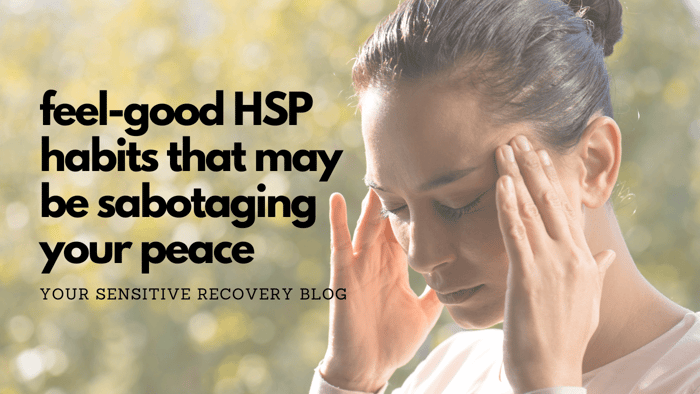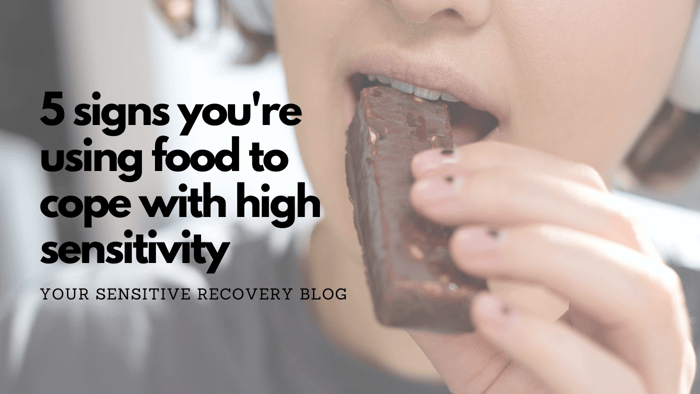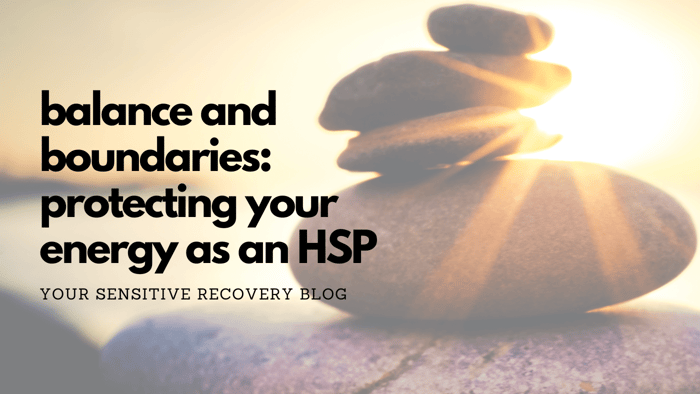As a Highly Sensitive Person, your depth of emotion, appreciation of beauty, and seemingly preternatural awareness can be wonderful characteristics. Yet, sometimes the same things that make you unique can also leave you feeling drained and overwhelmed. In the search for comfort, it’s easy for us HSPs to fall into feel-good habits that actually undermine our sense of peace, leaving us anxious, irritable, or disconnected from ourselves.
Learn how these 4 common, feel-good habits might actually be sabotaging you, and more importantly, the small shifts you can make to will help you reclaim your serenity.
With the Autumn Equinox approaching (this year it falls on September 22nd), we HSPs are reminded of the importance of equilibrium in our own lives. The equinox is a time of natural balance, equal light and darkness. Just as nature prepares to shift into a quieter, more introspective season, we too can make space for more calm by identifying and releasing habits that can throw us off balance.
Ready? Let's dive in...
#1 - People-Pleasing to Avoid Conflict
The Problem: Most HSPs detest conflict (🙋♀️) and go to great lengths to avoid it. Which, phew, crisis averted…but trying to keep everyone around you pleased often leaves us with growing resentment, exhaustion, and disconnection. At its root, people-pleasing is not so much about wanting others to be ok, but about controlling the environment so that WE can be ok and hopefully avoid upsetting and overstimulating emotions. And that's kinda ick. Avoiding conflict like the plague ultimately erodes trust and intimacy in relationships. No good.
The Shift: Practice engaging in conflict by expressing your opinion on low-stakes issues. Start with minor opportunities such as what you want for dinner or what movie you want to see. Through this practice, you will develop comfort around voicing your needs and desires and the confidence to communicate openly. As your ability to tolerate the anxiety around conflict grows, you can progress to addressing more significant issues, maintaining the understanding that conflict can be respectful and constructive.
#2 - Procrastinating The Hard Stuff
The Problem: Delaying tough tasks like a difficult project or uncomfortable discussions feels good in theory...at least for a time. The truth is, however, that putting off hard stuff creates ongoing internal stress and tension, which can sap your energy. This is true for most, but especially us Highly Sensitive folks. Because of our tendency to process things deeply, we're likely to ruminate on unfinished tasks or the consequences of procrastination. So while we're putting off the hard action, we're not putting off the emotional discomfort of it.
The Shift: As HSPs may feel overwhelmed by large or complex tasks, breaking them down can reduce the pressure and get the ball rolling. See if there is a way to break the tasks you tend to procrastinate into smaller, manageable steps. By simply focusing on tackling the first of those steps, HSPs can ease into productivity without overwhelm and can witness their momentum build.
#3 - Dialing Down Hope to Avoid Disappointment
The Problem: Feeling let down or disappointed is hard for anyone, but the emotions can be particularly intense for Highly Sensitive People. As a means of avoiding potential discomfort, you may find that you try to convince yourself that the outcome "doesn't really matter" or that you "don't really care." This habit is meant to be protective, but dialing down your hope or optimism typically involves some self-criticism, which prevents you from experiencing peace and contentment in your daily life and can eventually stop you from taking important risks.
The Shift: HSPs will benefit from some improved self-talk around disappointment. Start by reminding yourself that disappointment is temporary and that the outcome doesn't necessarily define your efforts. With this shift, you can allow yourself to maintain a sense of hope without feeling crushed when things don't go as planned. It's all about building that resilience!
#4 - Just "Going With the Flow" With Your Senses
The Problem: Do you find that the way you take care of your sensory needs is different when you're alone versus when you're around others? Highly Sensitive People sometimes experience guilt or discomfort when asking for things like the volume to be lowered, or for the heat to be turned on. While sure, you might come off as easygoing, trying to push through your sensory sensitivities will keep you in a state of ongoing physiological stress.
The Shift: I know when I'm uncomfortable, I can't be as present as I'd like to be for the people around me. Advocating for my sensory needs becomes easier when I can reframe it as a way of being more present. If it still feels hard to ask for what you need, try presenting an option along with your request. For example, if you're getting too warm at a friend's house, you might say, "Would you mind turning on that fan, or could I move my seat a bit closer to the window?"
The Nuances of Nurturing Your Sensitivity
As a Highly Sensitive Person, it's natural to gravitate toward habits that feel comforting in the moment, but not all of them are truly nourishing your nervous system or your well-being. It's so important to become mindful of these sneaky patterns, like avoiding conflict or dialing down your hope, so that you can begin to make changes that will truly honor your sensitivity while also protecting your precious peace.
Remember, nurturing your sensitivity cannot mean sacrificing your emotional health. By breaking free from these habits, you can create more space for authenticity, connection, and the deeper sense of balance you deserve. 🌱
✨ Josie Munroe, LMFT is a licensed therapist and owner of JosieMunroe.com and Your Sensitive Recovery. As a recovered clinician and Highly Sensitive Person, she loves supporting others on their journeys to form new, empowered relationships with food, their bodies, and their sensitivity. Join the newsletter for a weekly boost of hope and inspiration. You deserve a recovery that works for you! ✨





